Hi Janet,
I am having a tough time with my almost two-and-a-half year old daughter Madeline. I have practiced Magda Gerber’s approach since before she was born while I worked in infant care, so your approach is what I am used to around children. She has, thus far, been brought up in a very calm, patient, encouraging, respectful home.
Madeline has always been an “easy-going” child – very empathetic, happy, independent … all around great. Recently, she has begun to start “back-talk”, and apparently it is the button to push! When I (or my husband) am trying to tell her something, she argues with us to the point where I don’t really know where to go before it turns into an argument or power struggle. A couple of examples:
Grampie was in the bathroom and she was standing at the closed door, yelling for him. I told her “Madeline, Grampie is just going to the washroom. He will be out soon. He needs some privacy. Please stop shouting at him.” She started shouting back to me “No! No, he doesn’t need his privacy!”
She hit me with a toy (half-by-accident, I think…), and I told her “Ouch! That hurts me. I don’t like it.” She replied (quite indignantly), “Yeah, ya do!” This happens quite often when I express my own feelings to her – she replies, with lots of attitude, the opposite.
I understand that it is a time of independence and she is learning how to be her own person. I understand that it is a very conflicting and confusing time for her because she wants to be independent but still needs us. We have always given her lots of space and time and choices, so this is new for us. I don’t really know what to do.
Lisa
Hi Lisa,
You nailed the issue here: “She has begun to start “back-talk”, and apparently it is the button to push! “ Madeline continues to push your button because it works — the back-talk is getting a rise out of you. The solution is simple: deactivate this button so the behavior loses its power.
I realize that this might not be as easy as it sounds. It may not even seem right to you. Yes, this is rude behavior, and if anyone other than your own 2.5 year old daughter treated you this way, you’d be rightfully offended. And then the fact that this is your empathetic, all-around-great little girl whom you’ve adored and respected makes it feel a million times worse. It’s surprising and alarming. How dare she? What’s happening to your precious girl? Where is this obnoxious behavior coming from, and how do we put a stop to it?
If you were a less empathetic, knowledgeable parent you’d probably spank her or put her in time out, but since you are respectful and enlightened I advise something far more effective: adjust your perspective. There is surely some good news here, so consider this:
1. As you know, toddlers need to test their power, express their individuality, try stuff out. Madeline’s right on track.
2. Toddlers commonly express their burgeoning independence by disagreeing with us, no matter what it’s about. Magda Gerber used to tell the story of a toddler shouting NO before eagerly accepting an ice-cream cone from her parent. Defiance is an almost automatic response, so when we say ‘yes’, toddlers have an overpowering compulsion to say no (and vice-versa), whether or not they really mean it. It’s nothing personal.
3. Madeline’s talking!
4. She has strong opinions and the attitude to go with them, some of which are going to be nutty and inappropriate, but the fact she expresses herself this way means she’s an assertive, self-confident girl.
5. I’m usually not one to compare young children to animals, but when I think of toddlers experimenting with their power, I see gorillas beating their chests. Woohoo! It’s a powerful time.
6. She’s testing these behaviors out at home where she knows she’s safe, loved and generally accepted, which means you’ve nurtured her well.
7. She’s tiny and 2.5 years old. I imagine you and your husband are quite a bit taller and at least…20? In other words, don’t take Madeline’s hollering and back-talk personally or feel the slightest bit threatened by your blustery little girl. See this for the healthy testing it is and rise above it.
Here are some “Take 2” suggestions for the example you gave me:
It sounds like you began to get a little wound up when Madeline was hustling poor Grampie out of the washroom, but you tried to keep your cool. How was your tone, do you think? Did you seem calm and unfazed?
Take a step back. Isn’t it kind of sweet that this commanding little toddler wants her Grampie so badly and thinks she might be powerful enough to eject him from the washroom? I know I’d be flattered if that were my grandchild. So, if I were you, I would say lightly, “Somebody really wants her Grampie! Madeline, I think Grampie may have heard you…and he might need another minute or two.” I’d leave it at that.
Besides, can’t Grampie fend for himself?
When Madeline hit you with the toy (which probably wouldn’t have happened if she hadn’t sensed you were upset about Grampie), your response set you up for even more button pushing. Stopping her before she hit you would have been ideal, “Ouch!” is fine, and “that hurts me” is okay if you aren’t too emotional about it. But you might have taken the behavior a little too personally when you added, “I don’t like it.” Believe it or not, these few extra words could have been enough to indicate to Madeline that this minor incident had the power to upset you, when what she needed was reassurance that you were confidently in charge. So she continued her button-pushing barrage with her pugnacious response, “Yeah, ya do!”
When children do this it’s as if they’re saying, “Can you handle this? Can you handle me? Please prove that you can handle me with ease.”
Here are some other light-hearted (but not sarcastic) “deactivating” responses to bossiness and back-talk:
“Well, I guess we disagree on that one.”
“Hmm… Thank you for your opinion.”
“You seem to have strong feelings about (Grampie leaving the washroom, etc.)”
And when in doubt there’s always, “Interesting!”
So, take a step back, react and worry less, enjoy your daughter’s spirit!
Hope this helps…
Warmly,
Janet
For a complete guide to toddler behavior, please check out my new book:
NO BAD KIDS: Toddler Discipline Without Shame
(Photo by EF Photography on Flickr)

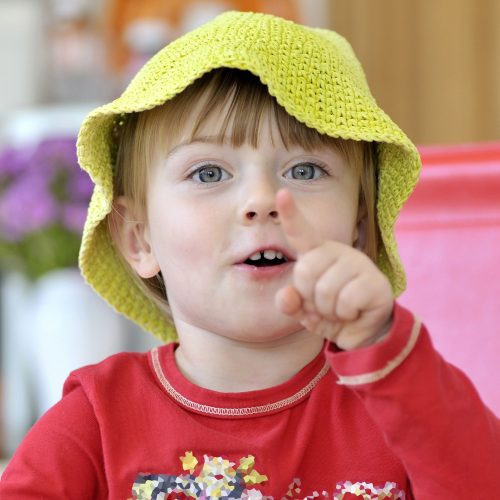

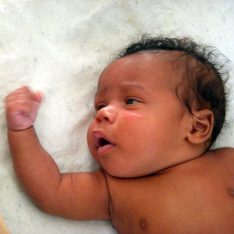
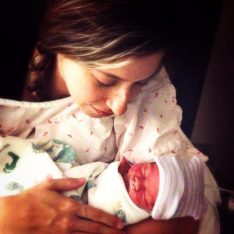

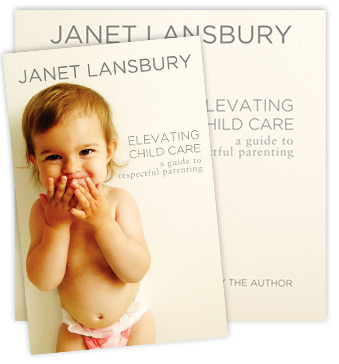

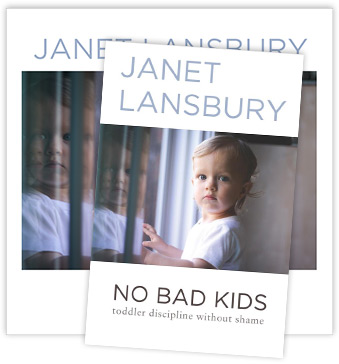

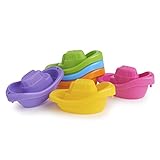

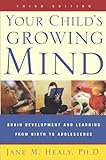
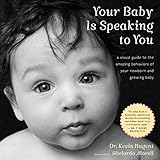
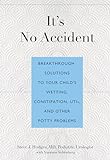
Hi Janet,
I love to read your blog because I feel like you give great guidance. This issue is a timely one for me because I am dealing with similar behaviour from my older daughter, who is almost five years old. She too has been pleasant and fun to be around until a month or two ago. I have been attempting to follow the RIE approach since I first discovered it about three years ago, but I have to confess that sometimes I let irritation creep into my voice, especially when dealing with sassy “back talk” from my older daughter. Most of your advice deals with babies and toddlers and I am wondering if you recommend a similar approach to older children. It seems like keeping calm and not letting children push your buttons makes sense for any age (although sometimes it is easier said than done), but I thought I would ask and see what you recommend for older children.
Hi Caitlin! Yes, I do recommend this approach for older children as well. It can take great fortitude to stay calm and accepting in the face of defiant behavior…for sure! But I have felt so proud of myself when I have done this… I feel myself rising above the situation and operating at my highest level. And it WORKS! Just the other day, I was late leaving for school with my 11th grade daughter. She is often the one who is late leaving the house, but this time it was me… I got busy with other things…it was thoughtlessness. So, we drove to school in silence because my daughter was so furious with me. I apologized, but she remained angry. As we drove along the highway many defensive thoughts ran through my mind… She is ALWAYS so tired and quiet in the mornings…this is nothing new. SHE is usually dawdling when I am ready to go. Blah, blah, blah. But I decided that in spite of all the “unfairness” I saw in this situation, I would be the bigger person. So, when it was time to drop her off and say goodbye, I gently held her chin and turned her eyes toward me and I said, “I am so sorry for my thoughtlessness.” When I picked her up later, she was jubilant and loving again.
Oh, this just brought tears to my eyes, I don’t know why! I guess I wish I could be this kind & loving & accepting! You’re truly an inspiration.
🙂 Thank you, Anda
I love this because my three year old son is in the phase of telling us to “shut up” and being more defiant than normal. He is almost 3 1/2 . He will listen to my husband because he is gone a lot and I am with him most of the time but when it is only my toddler and myself, he can be pretty bad. It’s embarrassing when he tells others to shut up or will talk about bad guys he see’s on tv and even told my dad that he was going to kill his dog. I know he doesn’t understand a lot of what he says now but I have taken him aside and spoke with him one on one. It can be hard being so calm in difficult situations like this.
Hi Janet,
Thank you very much for this enlightment. My daughter is 3 years old and going through the same kind of behaviour. It is hard to see that your kid is growing up and defining her own space with the back-talk and defiance. This post gave me some fresh air to keep going as some of this behaviour is just part of the process. Step back sometimes might be the only thing to do sometimes. Thank you.
Thank you, Fernanda! Giving fresh air is exactly what I want to do.
Dear Janet,
I had a good laugh reading this post today. I have a 7 and 1/2 month old baby, and while she’s not a toddler, and she’s not yet using words, she is indeed “talking” and asserting her wants, needs, and preferences loudly and clearly, and sometimes, her wants and preferences are in opposition to what she needs, or what I need in the moment.
For instance, she has decided that she doesn’t want me to be out of sight for even one minute when she is awake, but this isn’t always possible, because occasionally, I have to use the bathroom, or excuse myself to prepare her bottle or a meal for her, and she needs to have naps, as much she protests that she’s much rather continue to play and engage with me, long after she’s exhausted herself.
Her way of communicating her displeasure with my absence (however short lived) is to emit very high pitched, loud squeals- the kind, that no doubt, can be heard by all the neighbors, making them wonder what in the world I’m doing to torture the poor child. This has been going on for about a week now.
At first, I wondered if it was because she was sick or in pain (as she’s teething), or if I was doing something wrong. But then, I redoubled my efforts to observe closely and to really try to listen, and I realized this was just developmental- meaning this was just my girl asserting her will and her preferences, and her displeasure when I couldn’t immediately respond, (or when I responded in a way she didn’t like, for instance by putting her down for a nap when she clearly needed one, or asking her to wait while I prepared her lunch).
I had to take a step back and realize that nothing was wrong- my girl was just expressing herself and her desires, and it wasn’t personal. My job was to remain calm, let her know I heard her, and that I was working hard to meet both her needs and her wants…
In some ways, this is a breakthrough for both of us, because we’ve spent the past 4 months getting to know each other, and I’ve worked hard to let her know I’m listening to her, and she can feel safe to express herself, and now, she is!
The same principles you outline in your post apply to my 7 and a half month old baby, just as much as they apply to a two and a half year old.
Her job is to express herself. My job is to listen, remain calm, not take her unhappy communications personally, and to respond to her wants and needs, while also holding firm to gentle limits. (“I hear you saying you don’t want me to put you down, but I need to make your lunch, and I can’t do that while I’m holding you. I’ll be with you in a minute.”)
We had a much better day together today than we’ve had in a over a week, mostly because I was more calm and assured in my responses, I think.
I actually admire her strength and her determination, and appreciate her communications, and that she seems to know her own mind, and I wish to continue to encourage her to let me know what she wants, even as I endeavor to encourage her patience and co-operation(just a little at a time) with me.
I can only imagine what she’ll be saying and doing when she’s two years old, but whatever it is, I’m committed to continue to listen to her, and negotiate with her, and I’m sure we’ll find our way through it together.
HA! I love the way you’ve figured this out, dear Lisa! Yes, it sounds like you are rearing a very strong, assertive girl. I’ve known, loved and learned from these kinds of children myself. Yes, it can be challenging, but it’s such a blessing to care for someone who is clear about what they want, knows his or her own mind. She’s a RIE baby! 😉
I have two grandchildren 9 yr old grandson and 2 yr old granddaughter that have had a tough time in their own home and are spending more time with us this summer , now I come from a very strick home and raised my daughter accordingly never had any problems like we do with the grandkids , not my daughters kids they are my stepdaughters who had a rough childhood.
These kids are so disrespectful and rude , the little one uses foul language hits screams tells me to stop it intentionally breaks things, the older one doesn’t talk back but gives that look and has no respect for other people’s things says he doesn’t care does spiteful things.
I hold my cool most of the time but after a few days I have been known to lower my voice and roughly pick up the little one and sit her down and tell her not to speak to me that way. The older one is bigger than me so I just lower my voice at him.
If I was to ever speak to my parents or grandparents or be disrespectful in any manor like these children my behind would have been sore the next day.
Its truthfully embarrassing , to the point I won’t take them to family functions or church activities. I love these little ones but am wore to a frazzel.
Hi janet! I really enjoyed this article! I have been dealing with this with my daughter and it made so much sense! Question: Does it still apply to a newly 4 year old? She has been doing this “talking back” thing since about 3 and it drives my husband crazy. I tend to be very understanding and patient, but to him it looks like I’m “letting her get away with it”. It is defiance that he needs correct, and to me it is an expression of her true feelings. Is it acceptable for her to be talking back at 4? She says things like “I can do whatever I want!” “We are not best friends anymore!” The bathroom thing happens with us all the time too. Especially when someone she really loves has to take a break from playing to use the restroom (or do anything that turns attention from her).
Hi Michelle! Yes, this applies to a 4 year old. The fact that this drives your husband crazy is one of the reasons your daughter continues doing it. I agree with you that your daughter is authentically expressing her feelings and I would even consider this refreshing. “We are not best friends anymore!” is obviously something she’s hearing (at school?). Does this really drive your husband crazy? It would seem to be therapeutic for her to be able to express this to her family…since it can be confusing and painful for children to hear from their peers. And “I can do whatever I want!” is a wonderful power statement! This doesn’t mean you let her do whatever she wants…it’s a fantasy. My response would be an acknowledgment, “You want to do such-in-such!” Letting her say things and letting her do things are altogether different.
The only difference I would see with a four year old is that if she talked to a grandparent or other adult this way, I would definitely take her aside (for a “time-in”) and let her know that it isn’t okay to talk to Grandma like that. This behavior is usually a signal that she is over-tired, etc., and not able to function at her best.
Janet, I’d like to ask for some clarification…
If I’m getting you right from the post and the comments, you’re suggesting that
a) You *would* suggest taking a child aside to let them know “it isn’t okay to talk to Grandma like that” in the case of rude behavior toward another adult, while at the same time
b) You would *not* suggest taking a child aside to say “it isn’t okay to talk to me like that.”
Could you say anything about why you’d address these situations differently?
It occurs to me that one of the frustrating things about rudeness is that while an adult can stop a hit from taking place, we cannot literally/physically stop rudeness!
Just to clarify, I meant
b) You would *not* suggest taking a child aside to say “it isn’t okay to talk to *me* like that” in the case of rudeness directed at a parent or caretaker.
i have the same exact question! thanks for asking!
The difference is that my goal is to be the person my child feels safe discharging feelings with, confiding in, etc. So, it’s important to me to hold a nonjudgmental, open space for my child to err with me. You might not agree with my choice! And that’s fine.
What I wouldn’t do is jump to help my child if she was rude or demanding, or take her on outings if she was treating me rudely, etc. And if her language was over-the-top, I would definitely let her know that wasn’t okay. But that’s never happened for me with my 3 children. We have a mutually respectful relationship, and they continue to share things with me that I would never have felt comfortable sharing with my parents. I consider that a great honor.
Hi Janet!
You mentioned that you wouldn’t jump to help her, or take her on outings if she were treating you rudely. I’m wondering what you might say in that situation? What might this conversation sound like with a 4yo? When this happens with my 4yo daughter, I feel like I’m creating a “consequence” by cancelling plans for an activity.
Thanks!
Hi Cara! It would be a consequence (the honest kind I agree with and explained here: https://www.janetlansbury.com/2013/07/truths-about-consequences/) in that you are essentially saying, “I don’t feel taking you somewhere when you are talking to me rudely.” That’s honesty and not being a doormat. I would say it in the kindest, gentlest, most matter-of-fact manner.
After reading your article on consequences, I feel like maybe I’ve been handling it correctly after all! Thanks! I needed that after a trying few days.
Hi Janet,
I really like the reminder to stay really calm. I felt I was doing this well….until my second daughter came along. Dd1 who is 2.5yo takes to hurting her and gee wiz it pushes my buttons like you say. It is just so hard to stay calm when my 3 month old baby is getting hurt. You have inspired me to keep trying.
Thanks again!
Hi Kate! Yes, I can imagine that pushes your buttons… I would calmly prevent her from hurting the baby and, if possible, I would give the baby a safe enclosed place (like a playpen or gated area), so that neither of you have to worry so much. In other words, stay calm, but give boundaries for unsafe behavior. Also, whenever possible encourage your daughter to express her feeling about this huge and difficult change in her life.
As someone finishing off a three-month program to deal with addiction due to having shut myself down at a young age, this kind of behaviour being too much for her to handle, I find myself wishing my mother had read this! You are doing a lot of good.
Thank you, Michael, and please hang in there!
I found this, again, a valuable post. One thing that I think might be worth considering, too, is that “backtalk” itself may not be a useful label, especially in the case of a 2-and-a-half year old. Their use of language is so different. Something that sounds like a defiant assertion to us: “No, he doesn’t need his privacy!” may be more of a wish or an expression of frustration, something that in adult grammar might sound more like: “I don’t want him to need privacy right now.” My 3-year-old often gets upset when I tell her I can’t do something for her right away because I am, say, cooking. “Do BOTH! Do BOTH RIGHT NOW!” Is this a command? I don’t exactly think so, because I think on some level she knows that I can’t go upstairs and get her stuffed dog while I’m cooking. I think it’s more an expression of a wish, even if it’s not grammatically framed that way. Thinking of it as a wish rather than as a command helps me stay calm and respond gently, “I wish I could do both, too, but right now I can only cook. You can go upstairs and get the dog yourself, or wait till I’m finished.”
One thing that I think I will struggle with more is when, as my child gets older, she says things that appear disrespectful to other people. I suspect this might have been part of what felt rattling about the Grampie example. But I think it’s one thing to have a four-year-old child say, “I don’t have to listen to you,” and another for the child to say to a caregiver, “You’re not my dad, I don’t have to listen to you.” “You’re mean and stupid, Grampie.” How does one respectfully communicate to a child that certain language is inappropriate while honoring the child’s feelings in that moment? Maybe Grampie can defend himself, or maybe not, but there’s a risk in that, too, if he takes a very different and harsh view of “backtalk.”
Thank you, Margarita, you make some wonderfully astute points. I agree that “back-talk” isn’t a useful label…and that some of these defiant sounding responses are wishes…YES! I love the way you handle these situations with your daughter: “Thinking of it as a wish rather than as a command helps me stay calm and respond gently, “I wish I could do both, too, but right now I can only cook. You can go upstairs and get the dog yourself, or wait till I’m finished.”
I also agree that there are times, especially as the child gets a bit older, when we have to intervene. If my children ever talked back to grandparents (which I only remember ever happening once, after a 5 hour cross country plane ride), I would definitely take the child aside (for a “time-in”) and let her know that this was not acceptable behavior. When this happened with my daughter, I actually had to carry her out of the room with me while she melted down. I realized later that her brief rudeness to Grandma was a signal that she was totally exhausted…and that made sense!
Reading your articles always helps me get back on the right track! You are so inspirational! It is really amazing! I have never met you, you are miles away from where I reside and yet you are the only one to actually help! Thank you!
You are so welcome, Valia! Thank you for the encouraging shout-out! Blessings to you…
Hi Janet,
I am new to the RIE world and lately I have been dealing with an extremely sassy, back-talking almost six year old. It’s getting really bad and now I see it’s because of my reaction. It gets me so angry and I’ve tried everything. Everything except staying calm. I’m wondering what’s the best way to fix my short-comings? Will what you wrote on the original post work on a six year old too?
Yes, Anjie, it helps children of all ages when we don’t react to their outbursts. I think it will make a big difference…maybe even in a day or two, if you can stop engaging with this behavior. You are big and she is small…so, rise above this!
Stop blaming yourself. Your child is acting selfishly and disrespecting others. The authors advice to continual avoid correcting this behavior is terrible. Your reaction is not causing the behavior. All children go through this and it is your job to correct it or raise a maladjusted child no one wants to be around.
Oh-oh. I think I’ve fallen into this trap…I do find myself say “I don’t like it!” a lot. And “No one likes when..” or “We like you and your laugh, but this is not your real laugh” (I don’t know why imitations of laugh get to me so much).
I did think that saying, that I don’t like being hit is a right thing to do, but you got me thinking…
We talk a lot how it is ok for parents to be human, but maybe being a little bit superhuman can go a long way with a toddler? 🙂
Evs, I don’t know about “superhuman”… 🙂 But I believe there are behaviors we should rise above and not let bother us (like fake laughing or crying), especially if we don’t want our child to continue those behaviors.
How should I handle it when my daughter gets this way with other young people, especially her younger sister? My Love is three and is a powerhouse! She is EXTREMELY assertive and not at all timid about showing her emotions. Other children are often easily hurt and/or angered by her behavior. My youngest Love (14 months), who is often a target, watches her sister closely and mimics her. Is all of this okay? I don’t mind them exploring their emotions and independence with me, but what about when other children are involved? I usually watch what happens, model positive communication, and redirect if it looks like someone is going to get physically hurt (a rarity). Am I doing the right thing?
Lisa, can be more specific about the way she hurts or angers other children? Does she seem to realize the effects of her outbursts on others?
Hi there! I´d like to add a thought to Lisa´s challenge: her father (or was it fahter-in-law) was at the other side of the door… carefully listening to her little struggle. Ha! This fact may have turned this loving and respectful mother a bit nervous? Having a Grampie listening to how I deal with my back-talking toddler would have influenced me for the bad, I know!! It´s a double challenge when we care and respect our babies and at the same time feel we might be judged by others, specially our own parents. I love Magda´s advise to grandparents on this point: if you come around for a visit wash the dishes and do not judge.
Great point, Fernanda. Hi! I’ve missed you!
another awesome post.
and perfectly timed for us, too – as you well know!! 🙂
magda’s story about the boy shouting “no” before accepting his ice cream cone had me laughing out loud… it’s so classic! it happens over here frequently.
xx
Thanks. Needed this one for my 4 year old!!
My son isn’t talking much yet, so talk-back isn’t an issue, but nice to know about “I don’t like it” being counterproductive. My standard response when he tries to hit me is “I won’t let you hit me. I don’t like that.” I guess I’ll try to get out of the habit of the second half. Fortunately it doesn’t happen often, so it’s usually not too hard to stay patient.
Meagan, I didn’t mean to imply that “I don’t like it” is always counterproductive. When parents share experiences, I try to imagine myself in that situation as the toddler (which is alarming easy for me to do!). After already saying, “Ouch”, it felt to me that commenting about the hit put a little too much emphasis on it when it may have even been an accident or partial accident. As the toddler I felt like my mom was angry and threatened by my behavior rather than confidently in charge, which would have had a much more calming effect. In this case, “I don’t like that” escalated the conflict a bit, instead of easing it.
Such a perfect post for exactly what we are seeing in our son. He is almost 29 months and does not have much language at all, but “communicates” very much like this little girl being described in the article. I can totally see how your examples of “deactivation” would absolutely work!
I do have one question…Is the best way to actually teach our kids to be “kind” to simply BE KIND, modeling that behavior? I would think so. Growing up in a much more directive household myself, the way we are doing things with our kids is sooo different. Sometimes I think I SHOULD be teaching him more specifically what is and is not ok. However, I find paying a lot of attention to certain behaviors make them much more “interesting” to him! I do also point out times he is being very kind, or show him how I am being kind to him, labeling what kindness is…. or what being a nice friend is, etc…
Thoughts?
Hi Janet,
I, like the poster, Lisa, have used an RIE approach with my daughter since I discovered it when she was 4 months old. She is almost two and I have always given her choices within reason such as “Do you want to wear the blue pants or the brown pants?” Or “Do you want me to carry you into the store or would you like to walk?” Before the last several weeks my daughter made these choices happily and easily, but recently the following scenario takes place almost every time I offer her a choice. For example: Me: “Would you like the wear the blue pants or the brown pants?” Daughter: “Blue” Me: Ok we’ll put the blue ones on together.” Daughter: (screaming and crying) “NO NO NO brown pants brown!” Me: Ok. I hear you. You want the brown pants instead. We’ll put those on then. Daughter: (screaming and crying) “NO NO Blue pants!” At this point I take the hint that she is not able to make the choice and needs me to choose for her so I say to her “It seems like you’re having trouble deciding what to wear, so I’m going to choose for you.” Me taking charge of the choice seems to escalate her even further until she’s having a full blown meltdown. I’m not sure what I’m doing wrong in this scenario and it has been happening on a daily basis usually at least a couple times a day. Perhaps it’s just a stage she needs to work through, but it is baffling me nonetheless. Any insight would be appreciated!
My daughter does that too and it’s going to get tougher. They’re testing how we react. She keeps changing her choice to see how far will I play along. I entertain her for a few times if I have the time but once I don’t, that’s it. This is the last choice and we’re sticking with it. She also has sort of a meltdown. I just try to remember the words “don’t be afraid of her tears”.
I feel the only way to deal with it is once you notice you’re losing your nerve and this is escalating out of control, cut it short with a “you’re having a hard time making a decision, we’re doing this”. Then not try to justify yourself or feel guilt for her emotions. Carry out what you said with the air of a leader and comfort her while she cries. I say no to her, she comes all screaming to me because I said no, and I still hug her and hold her. It is amazing, I’m the source of her frustration and comfort all at once, and she does not mind one bit. I do wonder how long this will last.
One thing your daughter may be working through is the realization that there are other options out there: she doesn’t want the brown pants or the blue pants. She may or may not be at a point where she is able to express what she wants, but if she is (and maybe if she isn’t?), you might ask her to tell you what she wants. Sometimes when my daughter is so worked up I can’t understand her, I say, “show me what you want.” If she really wants pink pants, then I see no problem with letting her choose that. There will, of course, be times where she can’t have what she wants. My daughter once completely fell apart because she wanted a certain color of clothing (I think it was socks?), and there were no socks of that color in her wardrobe. She was probably about your daughter’s age. Now she’d probably have the savvy to tell me I should buy her some (not that I would!), but at that age it was more of an inchoate sense of longing, and a resulting sadness. But I still think that, at a certain point, it helps to have her express what she wants. Sometimes, if it’s not something she can have, I say, “You’re really sad about not getting a waffle right now. Would it help if we cuddled for a little bit, or do you think you just need to cry about that a little?”
Excellent advice! I actually enjoy my 2.5 year old talking back to me, I listen to her and am fascinated by her logic but in the end I decide what’s going to happen. My husband is having a harder time with the same issues mentioned above. I keep telling him not to get sucked into an argument with a 2 year old. I mean listen, communicate of course but this is not a logical argument between two equals. In the end someone has to pull the breaks and make a decision, and hopefully it’s the parent.
Thanks for all the great blog posts, including this one. I have a question about this as it applies to the “I don’t like it” thing. My son likes to pull my hair hard and when he does, I calmly say, “I don’t like that, it hurts me, I won’t let you do that,” and put my head out of his reach so he cannot do it anymore. For me, treating him with respect in this situation instinctively meant for me to tell him how I feel–the why behind the rule.
Sometimes I even add, “I like it when we’re close together,” because I do, and my feelings about him are not changed by the hair-pulling.
Would you handle this differently? Since the hair pulling is still regularly happening (once a day usually), I figure either my approach isn’t working or this is my son’s safe way of checking to make sure the same rules always apply with his mama so he knows the boundaries are secure and feels safe.
Love reading your articles, we have a 2 year old and a 9 month old and are trying to “convert” to RiE parenting… Usually failing at a situation and then reading what you’d do and next time correcting 🙂
Our latest issue with our 2 year old is screaming at our kitty when it is in the room.. Which of course causes the kitty to hightail it out of there and then my 2 yr old laughs.
And help on how to deal with this??
Holding her hands and feet when she hits or kicks at her brother and saying I wont let you kick/hit works but not sure how to reduce the screams?!?!
Thanks!!!
Hi Jen! It doesn’t take a major “conversion” to benefit from some of these practices, so don’t worry! 😉 How are you reacting to the screaming now? I would approach the screaming similarly to what I recommend in this post. Don’t focus on it, try not to react and you’ll disempower this exciting behavior. I also wrote a post about screaming: https://www.janetlansbury.com/2011/10/when-toddlers-scream/ Hope this helps!
Oh so timely! My son just turned 4, my sweet, darling, quirky little guy and it’s like a switch flipped. My husband and I were wondering why it seems like overnight he is now into everything, doing things he’s never done before, dangerous things and of course since the first thing he did was scary (climbed to the very top of our closet and got things down) I freaked out and I think that probably set the stage. He was throwing my laundry and I told him he is welcome to throw balls, but not my laundry and he very purposefully put himself in my lap and put my arms around him and proceeded to kick the floor and ‘hmph’. I just sat and told him he has very big feelings and asked if he liked the drumming sound of his feet. “NO!…YES!” was his response. He likes to frequently yell, “NO!” as loud as he can. I was trying to figure it out and this post drastically sped me up, I look forward to being completely unruffled and better prepared tomorrow.
I have been looking through this site to learn more about this parenting philosophy because I have never heard of it before and I have a friend with a very difficult 2 year old who practices this parenting method. After reading this post, the lack of discipline or consequences in their home makes more sense to me. Honestly, I think the advice here encourages parents to avoid having their child face consequences for poor behavior. If I was behind that door, and there was no obvious punishment for a child behaving in this manner, I would be more than a little annoyed. At what age do you recommend that children have some sort of consequence for socially inappropriate behavior? Children need to learn that when they are rude, or mean, or they hit, there are real consequences for others. They need to be taught that hitting someone is serious. Perhaps the next time this child will hit her younger sibling hard with a toy, because in the past, the parent either 1) responded by stopping the hit OR 2) did nothing to punish this child. The child needs to learn to stop their own poor behavior. In my experience, the most poorly behaved children are those who don’t face any consequences for their poor behavior. The consequence should be something that is age appropriate and responds to the infraction. And if the child is old enough, the punishment should end with an apology to the adult (or child) to whom they directed their poor behavior. All 5 of my children at this age were capable of understanding that this sort of behavior was rude, and sincerely apologizing. Parenting isn’t just about respecting your children, but teaching them to respect others — even at the age of 2.5. Sure toddlers will test their limits, and they will be rude, but when parents fail to teach them that there are consequences to behaving this way, these toddler are pretty awful people to be around.
Kellie, I recommend learning about child development. Yes, you can turn a 2.5 year old’s minor tests and experiments into a major drama, shame this baby with your consequences, etc. You might then feel you’ve won a battle, but you will lose in terms of a quality connection with your child, because you’ve created an unecessary war and a tiny “enemy” who needs your gentle guidance and compassion. The last thing she needs is your punishments and demands cloaked as “consequences”.
Love your posts, but I do have one question, I also have a back talker she is nearly four and she thinks she knows it all, what is not right about saying “I don’t like it.” for example, she hits me and I tell her its hurts and I don’t like it, to be hurt, why should we not say this? surely they need to know we don’t like to be hit and its not ok. should we phrase it differently. thank you
Hi Christina! Meagan had a similar question and rather than repeat my response, here’s what I shared with her:
Meagan, I didn’t mean to imply that “I don’t like it” is always counterproductive. When parents share experiences, I try to imagine myself in that situation as the toddler (which is alarming easy for me to do!). After already saying, “Ouch”, it felt to me that commenting about the hit put a little too much emphasis on it when it may have even been an accident or partial accident. As the toddler I felt like my mom was angry and threatened by my behavior rather than confidently in charge, which would have had a much more calming effect. In this case, “I don’t like that” escalated the conflict a bit, instead of easing it.
Thank you Janet, I hadn’t though of it that way. My nearly 4 yr old girl is really testing me at the moment, I also have a two yr old and 6 month old, so very busy and she wants my attention all the time, which is impossible.
Hello Janet, I am new to your blog and hearing about RIE for the first time. We have a 3-year-old who was born feisty – loud, demanding, willful – and has never been much of a peaceful baby. It’s taken it’s toll on us – sadly, in the form of avoiding public places and in some cases people. She is a strong, smart, confident and assertive little girl and I always tell people that these qualities will serve her well as she grows into a young lady in this world….it’s the years until then that have me terrified! We are expecting a second daughter in December and I feel an immense pressure to transform myself into a more effective and patient parent ASAP! My most urgent concern is how to respond when my daughter is repeating back to me the very things I’m saying to her, like. “NO, Mommy! YOU are NOT going to calm down and (fill in blank)!” or “NO, YOU pick up my crayons right now!” She pushes many of my buttons but this one has me pulling my hair out! Any insights?
Hi Erica! I recommend this post: https://www.janetlansbury.com/2011/06/how-to-be-the-gentle-leader-your-child-needs/
Please let me know what you think…
I have been learning a lot from reading your blog and surprisingly I am still able to use some of your “toddler” tips with my almost 5 year old son. His biggest phrase that he uses often is “well I guess I am never going to do that!” or something similar. For example, if he asks for oatmeal for breakfast and we are out, he’ll say “I guess I am just never going to have oatmeal!” Or the other day he was throwing a pillow on the couch and it was getting a little out of control, so I asked him to go outside and throw toys out there. He was already a little upset about something, (hence the pillow throwing) and I had acknowledged his anger and was allowing him to express it by throwing the pillow, but since it was getting out of hand I thought it best that he continue to do it outside. His response was, “if you tell me to go outside then I will never throw anything out there!” It’s strange because he is very articulate and usually is very good at communicating with adults but he uses these types of statements and often times (like this example) they don’t even make any sense, so I’m not sure how to respond. Usually I just say “ok” but I think that sounds a little dismissive and almost like I am not listening to him. Do you have any ideas what he could really be trying to say?
What about teachers? I have a kid in my class who sometimes does this exact thing. My first reaction and gut instinct is to ignore and downplay but my colleagues get very upset when the kids sass. What do you recommend?
What age do you teach, Jenny? I would generally ignore and downplay, but definitely let the parents know. It is my belief that these exploratory behaviors are reasonably healthy and to be expected when the child is at home, but when they are brought outside the home, I see them as a signal that the child is not getting what he or she needs from the parents and is, therefore, asking for “help” at school. This could be about a lack of boundaries or attention or something else going on.
Hello Janet!
A couple questions for you- as far as deactivating a toddler, if in the heat of the moment, you can’t think of a good response, what if the parent just walks away instead of the parent saying the wrong thing? Wouldn’t that be the most deactivating? And as far as the toddler throwing objects at the parent, could this be a sign that the child needs more boundaries or limits (parent saying “I won’t let you do that” as I’ve heard you mention in other posts)?
Thanks,
Candice
Hi Janet,
Great article. I have boy/girl twins who are 5 years old and I will be employing some of these strategies with them.
One question. In the event that the child is being disrespectful to a grandparent, etc., what would the time-in look like? Can you give me specifics?
Thank you!
This is all hitting home to me. My 3.5 year old has been speaking very rudely to me lately and even saying “shut your mouth” which infuriates me. I do let his words and aggressive behaviors get to me. A lot. He is very bright, funny, charming, sweet and articulate. Very precocious in his vocabulary and dramatic, intense, and charismatic. He loves to get a rise out of me, i know it makes him feel powerful. The last few nights, at bed time, he said “shut your mouth.” I said I don’t want to be around you when you say rude things to me and left the room. He followed because he likes me to snuggle him almost to sleep. I put him back in his bed while he kicked and screamed. Then he followed me out again and yelled and tried to hit me. I tried putting him back in his bed again and again and the cycle continued until his dad stepped in and calmed him down. It was a mess. In the end, I snuggled with him and he fell asleep. What should I have done when he said “shut your mouth” in a bed time situation? What should I have done when he kept following me out of his room? I read your articles and they are great, but in the real situations, I can’t seem to get it together. Help!